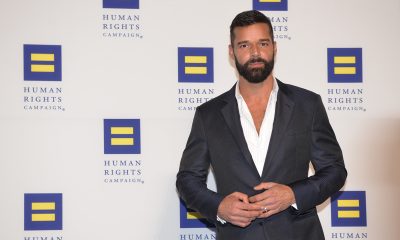Music & Concerts
Coming out and carrying on
Every year brings celebrity outings but the class of 2010 proved it’s getting easier
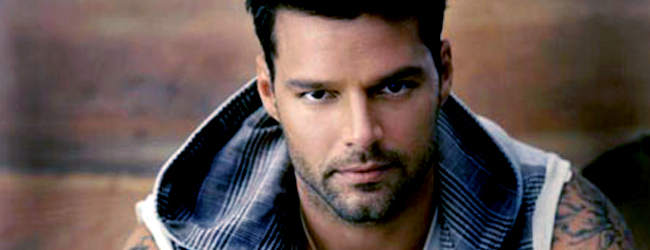

Country singer Chely Wright's coming out last year was not something that slipped out in an unguarded moment — she conferred with PR pros to maximize her impact and timed her memoirs and a new album with the announcement. This photo was taken at last year's Capital Pride shortly after she came out. (Blade file photo by Michael Key)
Last year was ripe with big-name stars and public figures who came out — singers Ricky Martin and Chely Wright, actors Amanda Heard and Anna Paquin and Republican politico Ken Mehlman. Media observers say coming out in the new decade is getting easier for celebs even though it’s not a risk-free notion depending on one’s arena.
In 2010, the door of the closet was blasted off its rusting hinges, says leading Hollywood PR guru Howard Bragman, who is openly gay and married. He says there are three important things about the latest batch.
“Number one, there’s more,” says Bragman, a gay activist well known for his skill at managing celebrity images in the media. “Number two, it continues to get big play as a news story, and number three, people are just happier when they come out, and their careers get better and other people take notice and then they decide to come out also.”
Braqman, who heads the Los Angeles-based boutique entertainment public relations firm Fifteen Minutes, says there’s still a “glass closet” in show business, but he adds that “everybody knows” who’s in the closet, “and it’s much harder now to live that kind of life than it ever was before.”
“Who wants to live that kind of life?” he says. “No matter how many hundreds of millions of dollars you make, and if you do, it’s just sad. And the real question is not, ‘Will coming out hurt your career,’ but, ‘Will staying in kill your soul?'”
Bragman was hired by Chely Wright’s record label and management company to “craft,” he says, her “coming out plan,” which culminated in May when she became the first major country music performer to come out as gay or lesbian. He says the reaction to her announcement — orchestrated through a story in People magazine, the simultaneous release of her autobiography “Like Me” and newest album “Lifted Off the Ground,” appearances on “Oprah” and elsewhere — showed that the careful strategy “worked, by every measure in the positive amount of media.”
“Chely Wright came out to save her own life,” says Washington-based PR executive Cathy Renna, who heads her own firm specializing in LGBT issues. “She came out because she’s a devout Christian and because she couldn’t live with her lies any more, so when she came out as a ‘gay Christian’ that was a real wake-up call.”
Forty-year old Richell Rene “Chely” Wright, with seven hit albums a Nashville star since she was named “Top New Female vocalist” by the Academy of Country music in 1995, was born and raised in small-town Kansas. She says in her book that she realized from the age of 4 that she would sing country music and that she was lesbian from the age of 8. Her third-grade “crush” on her female teacher may not have come with sexual awareness, but she knew immediately that these feelings in her community including at church were taboo.
So she was horrified at her feelings, imprinted early on by anti-gay slurs from her parents and the sermons against same-sex attraction preached on Sundays at her family’s church. As a result, she began daily ritual of praying to God, asking, “Please don’t let me be gay … please take it away,” as she writes in her autobiography. From childhood, she swore to herself never to confide in anyone her attraction to other females let alone pursue same-sex romantic love. Later, this resolve was cemented when she realized that it might be a career-killer.
During high school she worked one summer as a performer at the “Ozark Jubilee” in Branson, Mo. In 1989, following her grandfather’s urging, she auditioned and landed a spot in Opryland USA, a now-defunct theme park in Nashville. And as her career as a country music recording artist soared, with her first Top 40 country hit in 1997 — “Shut Up and Drive” and then two years later “Single White Female” — she would call Nashville home until 2008 (she now lives in New York City). That album, “Single White Female” went Gold (RIAA-certified sales of a half-million copies) and soon she was also being promoted as a sex symbol by People magazine and linked romantically with fellow country music star and friend Brad Paisley, with whom in 2000 she co-wrote their duet, “Hard to be a Husband, Hard to be a Wife.”
The personal reality, however, was different for Wright. Despite her desire never to have sex with women, she had a sexual experience at age 19 that led to an affair that lasted nearly a year, and later, during her rise to singing stardom, as described in her autobiography, she maintained a committed relationship between 1993 to about 2004 with a women (while both were closeted and the other woman even decided to marry). Wright calls this woman “the love of my life,” and their relationship endured repeated breakups under the strain of the closet and also her frequent absences while on tour, but then would regularly be followed by reconciliation.
Meanwhile, in 2000, Wright also began an affair with Paisley, though she says she felt zero sexual attraction to him, as to all men. She pursued it as a gesture of resignation. And she already was Paisley’s good friend. Today, she expresses remorse for how she treated him, saying on “Oprah” that “I have a lot of regret for how that (relationship) began and had a middle and ended. I had no business being in a relationship with him.”
Her reality was creeping up on her, she said in one interview after coming out. “I knew I’d find myself in a dark place again,” and she did. She continued to guard the secret of her sexuality so intensely that it brought her to the brink of suicide after an emotional breakdown in 2005.
“It was a perfect storm,” she told the Lawrence Journal-World, a Kansas paper in May. “It was layers and layers of fear and rejection,” and eventually an “implosion” resulted. “That’s a long time to hide a secret,” she says. “Everyone’s coming out experience is dynamic, emotional, difficult, scary.”
In her case, it began with a series of songs that she wrote, even though she fully expected to lose her country music career if they were ever made public. In private, she strummed away on her guitar, until literally her fingers bled.
That album, five years in the making became “Lifted Off the Ground,” a musical outpouring from her soul that she says on her website “was a making that began with an unmaking — a breakup leading to a breakdown on the way to ultimate breakthrough.” The result is a remarkable song cycle, an emotional torrent of a woman climbing inch by inch out of a deep hole into the sunlight, from the opening song “Broken” through the black humor of “Notes to the Coroner” and the joy of “Heavenly Days.” She says, “these songs were annoying me every single day, so I had to let them out.
“There was no formula, no Nashville Music Row template,” she says. “Quite frankly I just wanted to sleep.”
At one point she had told some people, including her sister and brother, that she was lesbian but could not face doing so to her mother, with whom she was in only rare contact. She did tell her father since she thought he was about to hear it from someone else. She wanted to continue to compartmentalize her life, she says, to protect her secret from him, but then she thought, “Why are we growing apart?
“I can’t do this,” she wrote in her autobiography. “I can’t have my dad die of a heart attack and him not know who I am. So I told him. He was surprised. He said, ‘But what about the boys?’ I said, ‘Dad, I tried.'” When she sat down in 2007 at her laptop to begin typing the title to her book, “Like Me,” and then her words began to pour out, she says that evening she enjoyed her first good night’s sleep in three years.
When the news broke in May that she was “out,” she says that she has been told that in her hometown school in Kansas, “three kids walked into the principal’s office and came out.” Now she is touring to take her new album to new audiences and she appears at the Birchmere in Alexandria on Jan. 21.
The other celebrities who chose this year to come out of their own closets each follow, of course, their own arc of self-recognition and then disclosure.
Bragman says coming out is a metaphor that extends beyond gay issues — it can apply to people in rehab, people in abusive relationships and more.
“Other people know,” he says, “and that’s the price you pay for being a celebrity. It’s sad, but there’s this price to be paid, when you give up the freedom of privacy and I tell clients that a mediocre career being who you are is better than great success living a lie.”
Puerto Rico-born Ricky Martin’s decision at 39 to come out in March, in People and on “Oprah,” says Bragman, “was not so big of a shock as Chely Wright, and it was also totally positive, but most of all, he’s another happy person now living a happy life.”
Longtime music star at first in Spanish-language pop music and then with the crossover mega-hit “Living La Vida Loca” in 1999 from his first English album, Martin had long been rumored to be gay, but generally denied being so, for example when asked the question point blank in a TV interview by Barbara Walters. He once said, “It’s no one’s business whether I’ve been to bed with a cow, a broom or a woman … I’m not going to tell anyone if I’m gay or not.”
In 2008, Martin became the father of twin boys named Matteo and Valentino, birthed by a surrogate mother. In 2010, he decided to out himself on his website saying “I am proud to say that I am a fortunate homosexual man. I am very blessed to be who I am.”
And he told Oprah Winfrey that he is in a relationship, but chooses to shield his boyfriend from publicity feeling he might find the spotlight “overwhelming.” He said on “Larry King Live” that “everything about saying (that I am gay) feels right,” and that “if I’d known how good it was going to feel, I would have done it 10 years ago.”
His autobiography “Me” was published in November and is now a New York Times best-seller. His career playing romantic lead roles with women — he once played Marius on Broadway in “Les Miserables” — is yet to be tested. It’s one of the toughest sticking points, especially for closeted actors — will the public and money backers buy and back them playing straight romantic leads if they’re out in their personal life. Martin is rumored to be in the running for the role of Che in the Broadway revival of “Evita,” set to open in 2012.
Renna notes that “Ricky Martin never presented himself as a macho stud and no one was surprised in any way” when he came out. When he did, “he came out as a parent, and it meant a lot to see him on the cover of People magazine with his kids.”
She says some barriers to coming out remain firmly in place mostly in Hollywood, especially for actors who play action heroes.
“There always seem to be more women than men celebrities coming out” for this reason, she says. “In Hollywood, to be a man and to be gay is still perceived to be a career killer, because Hollywood just can’t imagine a lead male actor coming out and then still being a credible love interest for women.”
She points out the case of actor Rupert Everett who can now only be cast as a best friend, and she says that to some extent this also seems to be the case now with Sean Hayes. Meanwhile, women like Portia de Rossi can come out as lesbian and still be able to be seen as of romantic interest to men. But Renna says it’s not the advantage it may appear to be.
“This is partially because women are not taken as seriously as men,” she says. “And especially lesbians are not. … Like in much of the porn industry, it’s just not threatening to straight men who may feel if they see lesbian sex, ‘Well, I think I’ll just join in,’ but they find two men together both horrifying and threatening.”
Renna sees a growing trend of young people coming out early in their show business careers, pointing to the example of 24-year-old actress Amanda Heard, co-star of the 2008 hit film “Pineapple Express,” who chose this year’s GLAAD 25th anniversary celebration to walk the red carpet with her girlfriend of two years, artist and photographer Tasya van Ree. Heard will appear next on the screen as Johnny Depp’s love interest in “The Rum Diary.”
“It’s especially encouraging to see young media personalities like Anna Paquin and Amber Heard, who see coming out as a way to take a stand against anti-LGBT bias, continue to thrive in the industry,” says Herndon Graddick, deputy director of media programs for the Gay & Lesbian Alliance Against Defamation (GLAAD).
Speaking to AfterEllen.com, Heard said, “I can’t be part of the problem. I hate the idea of a label as much as anyone else but I’m with who I’m with. I love who I love.”
Others in the limelight who came out in 2010 have had, however, a bumpier ride — for example, Ken Mehlman, George W. Bush’s 2004 re-election campaign manager, who served as Republican National Committee chairman from 2005-2007 and now heads global public affairs for the private equity firm Kohlberg Kravis Roberts. The never-married Mehlman was long suspected of being gay, but always fiercely denied it.
He changed his story by going public in August in an interview with a blogger for “The Atlantic Monthly” saying “it’s taken me 43 years to come to terms with this part of my life.” He now is working as a strategist for gay marriage rights, helping raise funds for the American Foundation for Equal Rights (AFER), the backer of the challenge in court to Proposition 8, the California ballot measure that banned same-sex marriage in that state.
Mehlman has been hit hard by some for alleged past hypocrisy, for remaining in the closet while presiding over campaigns linked to anti-LGBT laws and initiatives during his political career. One activist, Joe Jervis, has dubbed Mehlman, who is Jewish, a “Quisling Homophobic scumbag,” and another activist Michael Rogers said he should receive a “Roy Cohn Award.” However, gay “Milk” screenwriter Dustin Lance Black says “Ken represents an incredible coup for AFER,” as one of the most prominent openly gay figures in the Republican Party.
“I can’t changed the fact that I wasn’t in this place personally when I was in politics,” Mehlman, 43, told the Atlantic. “I genuinely regret that” and “it was very hard, personally.” He said he wishes “I was where I am today 20 years earlier.”
Speaking of the spate of self-outings last year, Bragman says he’s “thrilled with how many” there have been but there’s “still a long way to go.”
Renna agrees.
“We’re approaching a day when we won’t have celebrities who come out, but instead we’ll have celebrities who are out from the beginning of their careers,” she says.
Will there still be career risks?
“LGBT people still face tremendous bias in all walks of life, but it’s extremely encouraging to see so many media personalities flourish in their careers after coming out,” says GLAAD’s Grannick. “Ellen DeGeneres was once used as a cautionary tale against coming out, following the cancellation of her sitcom, but today she’s a leading force in Hollywood. Neil Patrick Harris has been an openly gay actor playing a straight role for several years now, and he’s continuing to achieve remarkable success.”
Music & Concerts
Washington chorale kicks off Christmas with vibrant program
‘Thine Own Sweet Light’ concerts planned
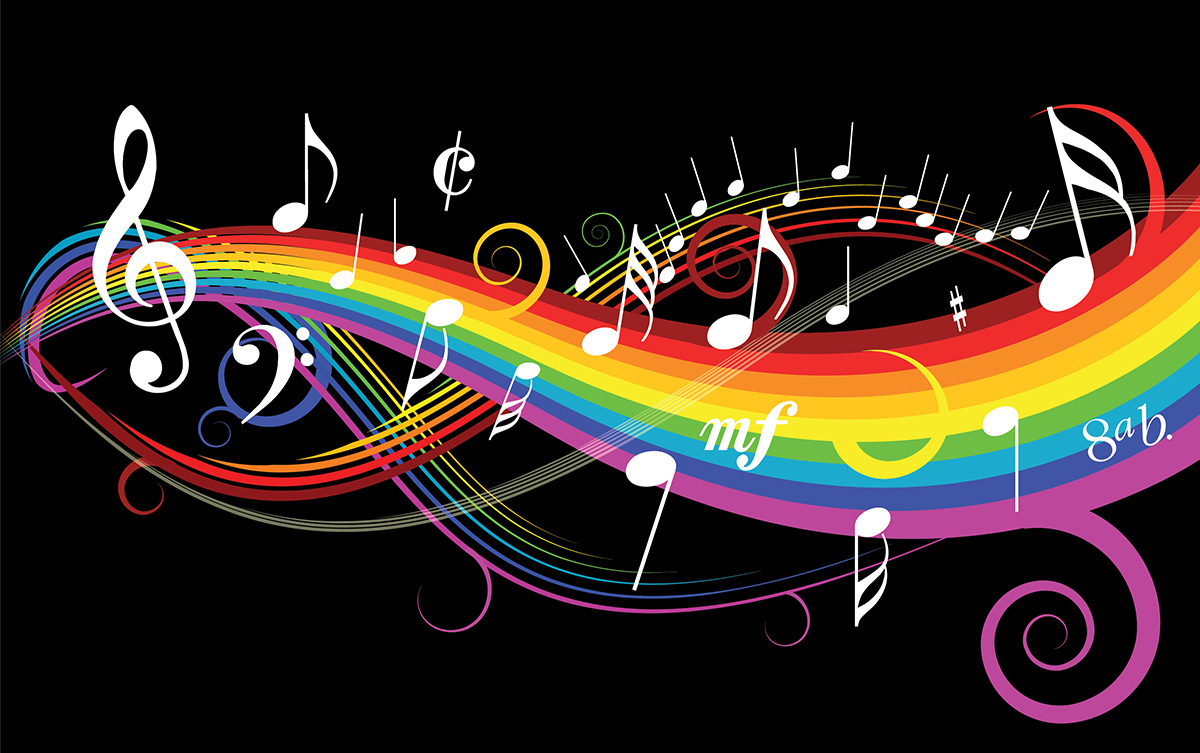
The full Washington Master Chorale will return for its annual holiday concert tradition with “Thine Own Sweet Light” on Friday, Dec. 19 and Sunday, Dec. 21 at St. Ann’s Catholic Church (D.C.) and Church of the Epiphany (D.C.).
The concert will feature the rich sounds of the 50-voice, a cappella chorus performing lush, seasonal choral music inspired by the theme of light. Highlights include Edvard Grieg’s “Ave Maris Stella,” Eric Whitacre’s “Lux Aurumque,” and Christopher Hoh’s “Holy, Holy, Holy is the Lord God of Hosts.” The program will also present a new work by Barcelona composer Josep Ollé i Sabaté, along with charming holiday folk songs and seasonal favorites.
For more details, visit the Washington Master Chorale website.
Music & Concerts
Queer mega stars (and allies) ready to take D.C. stages this fall
Watch LGBTQ icons light up stages across the DMV as they sing, dance, and drag their way through spectacular shows.
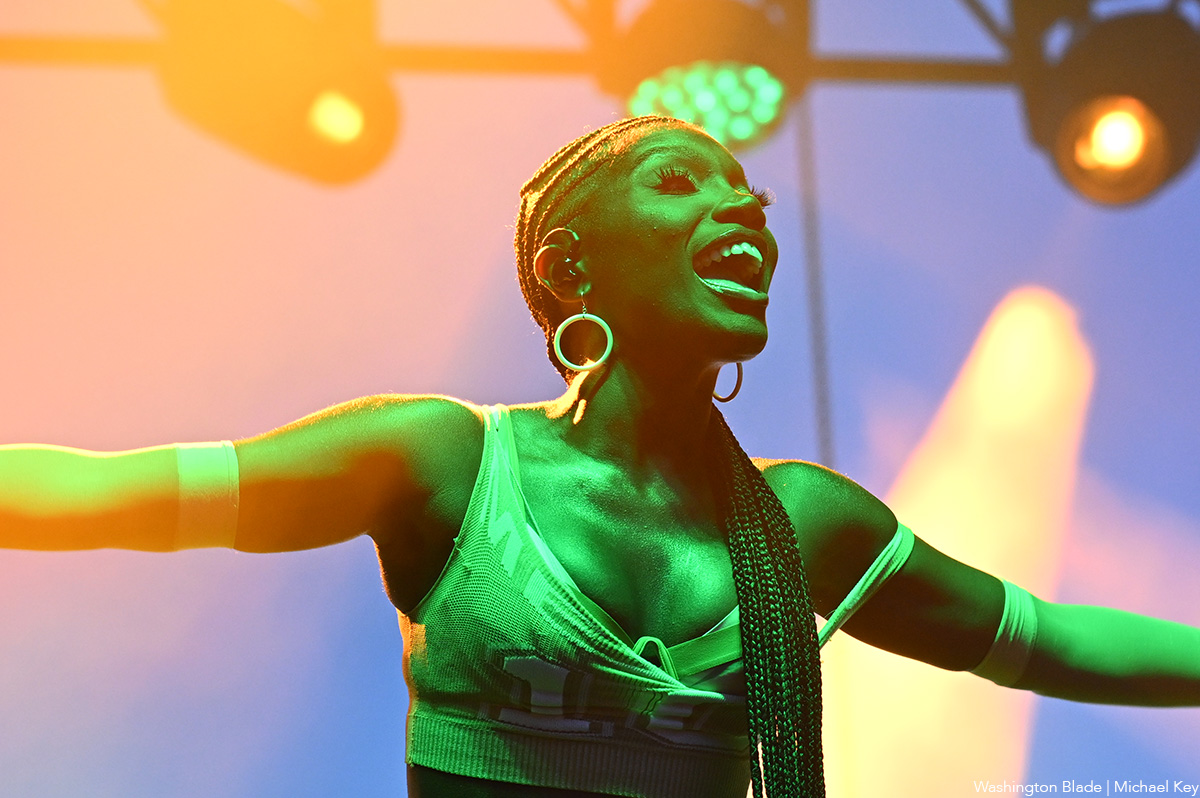
One of the best ways to welcome fall is by catching LGBTQ performers (and their allies) lighting up some of the D.C. area’s biggest stages. From country and pop to drag and rock, the season is packed with shows you won’t want to miss.
Maren Morris – The country, rock, and pop diva—known for hits like “The Bones” and for standing up against Nashville’s anti-LGBTQ voices—takes the stage at Wolf Trap (1551 Trap Rd, Vienna, Va.) on Friday, Sept. 12 at 8 p.m. Tickets start at $64.
RuPaul – The mother of modern drag and host of “RuPaul’s Drag Race” will spin a DJ set at Echostage (2135 Queens Chapel Rd NE) in Northeast D.C. on Sept. 20. Before RuPaul swaps wigs for headphones, Trade and Number 9 owner Ed Bailey will warm up the decks. For tickets and details visit echostage.com.
Conan Gray – The queer pop prince, celebrated for his Gen Z anthems like “Heather” and “Maniac,” brings his Wishbone Pajama Show to EagleBank Arena in Fairfax, VA, (4500 Patriot Cir) on Sept. 20 at 8 p.m. Tickets start at $113. For more info visit shop.conangray.com/pages/tour.
All Things Go Music Festival – With a lineup that includes Noah Kahan, Lucy Dacus, Kesha, Clairo, Doechii, and more, the beloved LGBTQ-friendly festival takes over Merriweather Post Pavilion (10475 Little Patuxent Pkwy, Columbia, Md.) Sept. 26–28. For tickets and details visit allthingsgofestival.com.
BERTHA: Grateful Drag – This unique tribute brings drag artistry and the sounds of the Grateful Dead to The Atlantis (2047 9th St NW) on Sept. 27. Tickets start at $47 at theatlantis.com.
Peach PRC – Rising Australian pop star and out lesbian, whose confessional tracks like “Perfect for You” and “Forever Drunk” have made her a queer TikTok darling, performs at The Atlantis on Sept. 29 at 6:30 p.m. The show is general admission only. Additional details are on theatlantis.com.
Addison Rae – The TikTok star-turned-pop princess, who’s crossed over into music with glossy hits like “Diet Pepsi” brings her sold out show to The Anthem (901 Wharf St., S.W.) on Sept. 30. Tickets are sold out, but resale options start around $80. For more info visit theanthemdc.com.
The Rocky Horror Picture Show 50th Anniversary – Celebrate the cult classic that’s been a queer midnight-movie staple for decades, with Barry Bostwick (a.k.a. Brad Majors) at the Warner Theatre (513 13th St., N.W.) on Oct. 2 at 8 p.m. Tickets start at $41 via Ticketmaster.
Chaka Khan, Patti LaBelle, Gladys Knight & Stephanie Mills – Four legends, one stage. Between Khan’s funk, LaBelle’s soul, Knight’s R&B, and Mills’ powerhouse vocals, this concert at Capital One Arena (601 F St NW) on Oct. 3 at 8 p.m. promises pure diva magic. Tickets start at $103. For more details visit capitalonearena.com.
Lorde – Joined by The Japanese House and Chanel Beads, the Grammy-winning New Zealand singer-songwriter behind “Royals” and “Solar Power” returns to The Anthem on Oct. 4 at 7 p.m. Lorde has long been embraced by queer fans for her dreamy pop and subversive lyrics. For more info visit theanthemdc.com.
Andy Bell (of Erasure) – The British queer rock icon, best known for synth-pop classics like “A Little Respect” and “Chains of Love,” brings his Ten Crowns Tour to the Lincoln Theatre (1215 U St., N.W.) on Friday, Oct. 17 at 8 p.m. Tickets are $90.45.
Doechii – The self-described queer “Swamp Princess”—and WorldPride 2025 headliner—continues her breakout year with the Live from the Swamp Tour at The Anthem on Oct. 21 at 8 p.m. Known for blending rap, R&B, and avant-garde performance art, Doechii is one to watch. Tickets start at $153.
Neon Trees – The out-and-proud Utah rockers behind “Everybody Talks” and “Animal” perform at the Lincoln Theatre on Friday, Oct. 24 at 8 p.m. Lead singer Tyler Glenn, who came out publicly in 2014, has become a strong queer voice in alternative rock. For tickets and info visit impconcerts.com.
Sasha Colby – The “RuPaul’s Drag Race” Season 15 winner strips down on the Stripped II Tour at the Warner Theatre on Nov. 2 at 8 p.m. Tickets available now on Ticketmaster.
Lola Young – The bisexual indie-pop sensation, whose raw songwriting has earned her millions of TikTok fans and multiple chart soaring hits visits The Anthem on Nov. 9 at 8 p.m. Tickets are still available.
Opera Lafayette
Featuring Mary Elizabeth Williams as Dido
+ Elijah McCormack, Chelsea Helm
Oct. 16, 7:30 p.m.
Sixth & I
PostClassical Ensemble
The Pale Blue Do: A Musical Voyage Inspired By Nature
Featuring National Geographic’s Enric Sala, Guest Curator
Wednesday, November 19, 7:30 p.m.
Terrace Theater
Washington Concert Opera
Starring Kate Lindsey, Theo Hoffman, John Moore, and Fran Daniel Laucerica
Nov. 23, 6 p.m.
Lisner Auditorium
Washington Master Chorale
An intimate a capella concert taking place in an architectural jewel, featuring cherished choral gems from Anglican and Catholic tradition and early American hymns. The concert will also present the world premiere of Christopher Hoh’s Holy, Holy, Holy is the Lord God of Hosts, and hymn singing featuring Robert Church, organist and choirmaster at St David’s.
Oct. 18, 7:30 p.m.
October 19, 5 p.m.
St. David’s Episcopal Church
Music & Concerts
Cyndi Lauper ready to have fun in Virginia
Superstar to bring final leg of farewell tour to Jiffy Lube Live
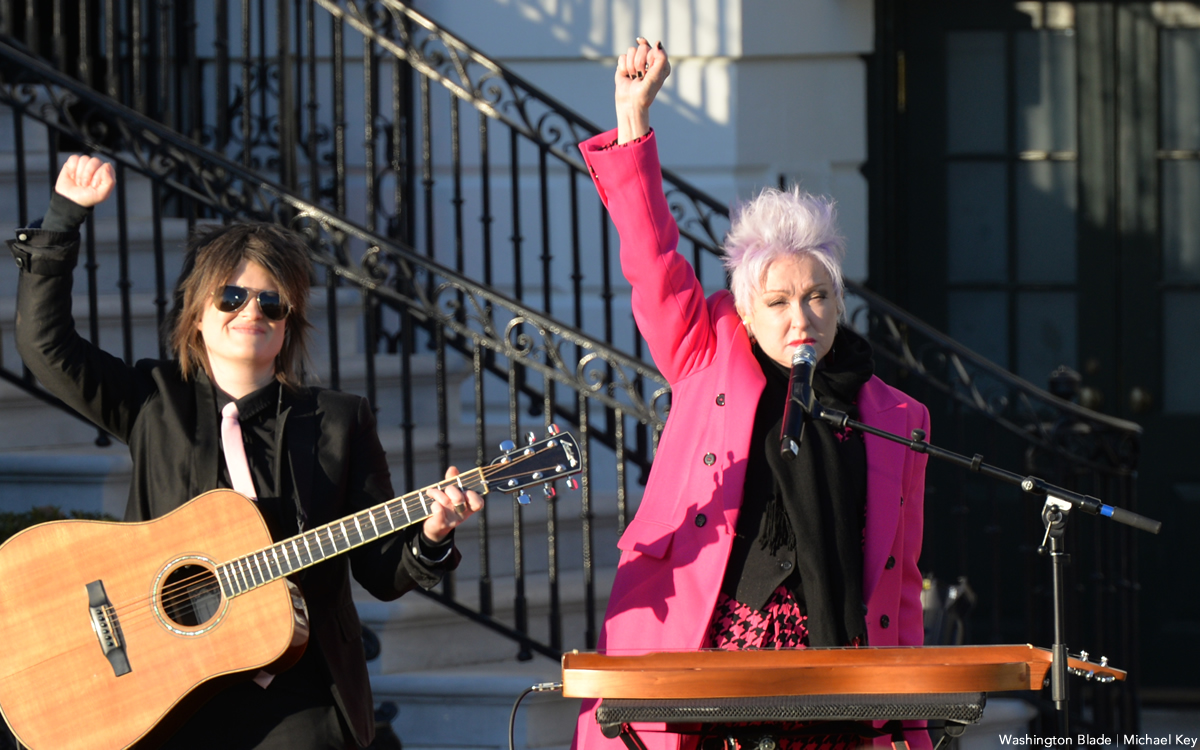
Superstar Cyndi Lauper will bring the final leg of her farewell tour “Girls Just Wanna Have Fun” to Bristow, Va., on Thursday, July 24 at Jiffy Lube Live.
Lauper’s international Farewell Tour – her first major headlining run in a decade – kicked off in North America last October, and included her first time ever headlining (and selling out) Madison Square Garden. Lauper’s performances have earned raves from the New York Times, Rolling Stone, Billboard, and many more, and surprise guests have included Chaka Khan, Sam Smith, and Hayley Williams. The tour just visited the U.K. and Europe, and will head to Australia and Japan in April.
Tickets are available on Live Nation’s website.





